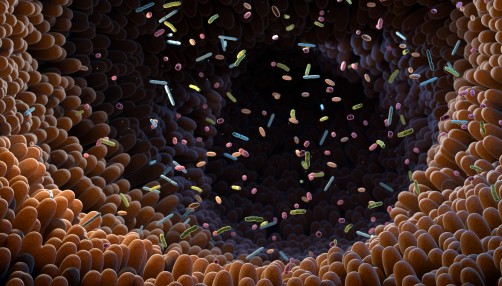Top Stories
New Study Links Babies’ Gut Bacteria to Future Mental Health Risks

URGENT UPDATE: A groundbreaking study from UCLA Health reveals that a child’s gut microbiome at just 2 years old may significantly influence their mental health as they approach middle childhood. Published in the journal Nature Communications, researchers found that specific gut bacteria are linked to heightened risks of depression and anxiety symptoms by age 7.5.
This new research highlights how the gut microbiome’s composition—particularly the presence of bacteria from the Clostridiales order and Lachnospiraceae family—affects brain connectivity related to emotions. The findings suggest that these microorganisms could play a crucial role in shaping emotional health during critical developmental years.
Dr. Bridget Callaghan, senior author of the study, emphasized the importance of these results: “By linking early-life microbiome patterns with brain connectivity and later symptoms of anxiety and depression, our study provides early evidence that gut microbes could help shape mental health during the critical school-age years.”
The researchers based their analysis on data from the Growing Up in Singapore Towards Healthy Outcomes (GUSTO) study. This longitudinal analysis involved collecting health data from children in Singapore, including stool samples at age 2, brain scans at age 6, and behavioral surveys from caregivers at age 7.5.
The study found a clear association between gut microbiome composition and internalizing symptoms at age 7.5. This connection underscores the potential for early intervention in mental health issues, which can have lasting impacts if left unaddressed.
Dr. Callaghan noted that previous studies primarily focused on infants and toddlers, leaving a gap in understanding how gut health influences mental health in older children. “Our findings shed light on the cascading effects of gut health on emotional well-being,” she stated.
The implications of this research are profound. As childhood depression and anxiety become increasingly recognized as public health concerns, understanding the role of gut bacteria could pave the way for innovative preventive measures.
Future research aims to determine whether these associations are causal. “We need to figure out what species within these larger groups are driving the findings,” Dr. Callaghan explained. “Once we have that information, there are relatively straightforward ways to change the microbiome, like probiotics or diet, that we could use to address issues.”
This study emphasizes the urgent need for parents and healthcare providers to consider gut health as a potential factor in children’s emotional development. As researchers continue to explore these connections, the hope is that early interventions can be developed to enhance mental health outcomes for future generations.
For anyone interested in the nuances of child development and mental health, these findings are critical, potentially transforming approaches to pediatric care and preventive health strategies.
Stay tuned for ongoing updates as researchers delve deeper into the gut-brain connection and its implications for mental health.
-

 Business2 weeks ago
Business2 weeks agoIconic Sand Dollar Social Club Listed for $3 Million in Folly Beach
-

 Politics2 weeks ago
Politics2 weeks agoAfghan Refugee Detained by ICE After Asylum Hearing in New York
-

 Health2 weeks ago
Health2 weeks agoPeptilogics Secures $78 Million to Combat Prosthetic Joint Infections
-

 Science2 weeks ago
Science2 weeks agoResearchers Achieve Fastest Genome Sequencing in Under Four Hours
-

 Lifestyle2 weeks ago
Lifestyle2 weeks agoJump for Good: San Clemente Pier Fundraiser Allows Legal Leaps
-

 Health2 weeks ago
Health2 weeks agoResearcher Uncovers Zika Virus Pathway to Placenta Using Nanotubes
-

 Science2 weeks ago
Science2 weeks agoInterstellar Object 3I/ATLAS Emits Unique Metal Alloy, Says Scientist
-

 World2 weeks ago
World2 weeks agoUS Passport Ranks Drop Out of Top 10 for First Time Ever
-

 Business2 weeks ago
Business2 weeks agoSan Jose High-Rise Faces Foreclosure Over $182.5 Million Loan
-

 World2 weeks ago
World2 weeks agoRegional Pilots’ Salaries Surge to Six Figures in 2025
-

 Science2 weeks ago
Science2 weeks agoMars Observed: Detailed Imaging Reveals Dust Avalanche Dynamics
-

 Entertainment2 weeks ago
Entertainment2 weeks agoJennifer Lopez Addresses A-Rod Split in Candid Interview








